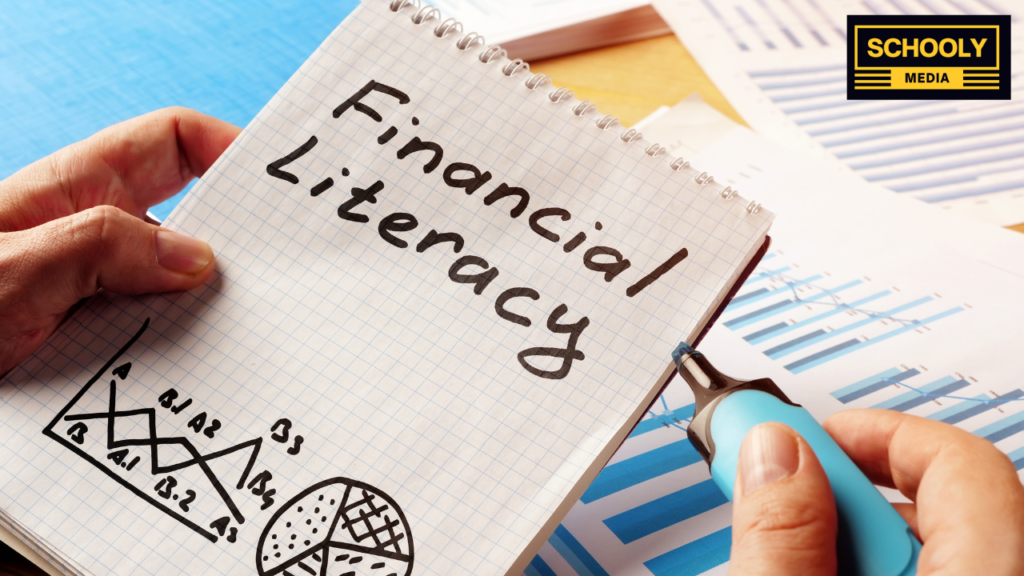As a student, embarking on your educational journey is both thrilling and challenging. Among the many lessons you’ll learn, financial literacy is perhaps one of the most crucial. Making smart money moves early on can set the stage for a secure and prosperous future. Here are essential Financial literacy Tips for students to help you navigate the world of finances with confidence and ease.
“Understanding how to manage your money wisely is the first step toward financial independence and long-term success.”
– Mr. B. Kumar

1. Budgeting: Your Financial Roadmap
Creating a budget is the cornerstone of financial literacy. Think of it as your financial roadmap, guiding you on how to allocate your income, whether it comes from a part-time job, student loans, or allowances.
Steps to Create a Budget:
- Track Your Income and Expenses: Use apps like Mint or YNAB to monitor where your money comes from and where it goes.
- Set Priorities: Identify your needs (like tuition, books, and rent) versus your wants (like dining out and entertainment).
- Adjust Accordingly: If you’re overspending in one area, find ways to cut back. It’s all about balance.
2. Understanding Credit: Build, Don’t Burn
Credit can be a powerful tool if used wisely. Understanding how credit works and how to manage it is critical to avoid common pitfalls.
Tips for Managing Credit:
- Start Small: Consider a student credit card with a low limit to build your credit history.
- Pay on Time: Always pay your bills on time to avoid late fees and interest charges. Setting up automatic payments can help.
- Keep Balances Low: Ideally, try to pay off your balance in full each month to avoid debt accumulation.
3. Saving: A Little Today, A Lot Tomorrow
Saving money might seem challenging when you’re a student, but even small amounts can grow significantly over time.
Smart Saving Strategies:
- Open a Savings Account: Look for accounts with no minimum balance and no fees.
- Automate Your Savings: Set up automatic transfers from your checking account to your savings account.
- Take Advantage of Student Discounts: Many retailers offer discounts for students—use them to save on essentials and put the difference into your savings.

“Investing in your financial education is one of the smartest moves you can make as a student. It pays dividends for a lifetime.” – Mr. B. Kumar
4. Investing: Planting Seeds for the Future
Investing might sound intimidating, but starting early can give you a significant advantage due to the power of compound interest.
Basic Investment Tips:
- Educate Yourself: Learn the basics of stocks, bonds, and mutual funds. Websites like Investopedia can be valuable resources.
- Start Small: Platforms like Robinhood or Acorns allow you to start investing with just a few dollars.
- Think Long-Term: Focus on long-term gains rather than quick wins. Patience and consistency are key.
5. Emergency Fund: Your Financial Safety Net
Life is unpredictable, and having an emergency fund can be a lifesaver during unforeseen events, such as car repairs or medical expenses.
Building an Emergency Fund:
- Set a Goal: Aim to save at least three to six months’ worth of living expenses.
- Contribute Regularly: Even if it’s just a small amount each month, consistency is what matters.
- Keep It Accessible: Use a separate, easily accessible savings account for your emergency fund.

6. Debt Management: Stay Ahead of the Curve
Debt, especially student loans, is a reality for many students. Managing it wisely can prevent it from becoming a burden.
Effective Debt Management:
- Understand Your Loans: Know the terms, interest rates, and repayment schedules of any loans you have.
- Make Payments on Time: Missing payments can hurt your credit score and lead to additional fees.
- Explore Repayment Options: Look into options like income-driven repayment plans if you’re struggling to make payments.
7. Financial Education: Never Stop Learning
Financial literacy is an ongoing journey. Continuously educating yourself will empower you to make informed decisions.
Resources for Financial Education:
- Online Courses: Websites like Coursera and Khan Academy offer free courses on personal finance.
- Books: “Rich Dad Poor Dad” by Robert Kiyosaki and “The Total Money Makeover” by Dave Ramsey are excellent starting points.
- Podcasts and Blogs: Follow financial blogs and listen to podcasts to stay updated on the latest tips and trends.

“The sooner you learn to manage your finances, the better prepared you’ll be to face life’s financial challenges with confidence.” – Mr. B. Kumar
Conclusion
Becoming financially literate is one of the most important investments you can make in yourself. By budgeting, understanding credit, saving, investing, building an emergency fund, managing debt, and continuing your financial education, you’ll lay a strong foundation for a secure and prosperous future. Remember, the smart money moves you make today will shape the life you lead tomorrow.






